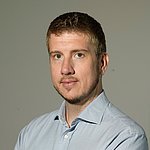The Novo Nordisk Foundation
Center for Biosustainability
Technical University of Denmark
Kemitorvet, Building 220, Room 204F
2800 Kgs Lyngby
Denmark

The Novo Nordisk Foundation
Center for Biosustainability
Technical University of Denmark
Kemitorvet, Building 220, Room 204F
2800 Kgs Lyngby
Denmark
SinFonia challenges the fact that nature has hardly evolved biochemical reactions involving fluorine (F), the most abundant halogen on Earth. Organic compounds containing F (fluorochemicals) are extremely relevant from an industrial point of view. Fluoropolymers are the main fluorochemicals on the market worldwide and are exclusively synthesized using chemical methods. Moreover, current fluorination technologies usually involve corrosive and toxic reagents that have a negative impact on the environment. Designing sustainable bioprocesses based on alternative and safer fluorinating agents from renewable substrates is thus a long-sought-after, yet unfulfilled goal. SinFonia proposes to engineer the metabolically versatile bacterium Pseudomonas putida to execute biofluorinations for generating novel fluoropolymers from renewable substrates. P. putida KT2440, a non-pathogenic soil bacterium, serves as an ideal microbial platform for F-dependent biochemical reactions due to its extraordinary resistance to harsh and stressful operating conditions.
SinFonia will exploit natural selection to enhance bioproduction through a smart strain engineering approach in which bacterial growth will be coupled to biofluorination. Our target compounds are a whole family of fluorinated polyesters with enhanced physicochemical and material properties, with uses as self-cleaning surfaces, low-surface-energy coatings, bio-based lubricants, membranes for fuel cells, and anti-fouling materials. The versatile P. putida strains engineered during the project can be easily adapted to synthesize other added value fluorochemicals. Unlike chemical processes, the source of F in our system will be NaF, an inexpensive and safe salt, and sugars as the main carbon source. In-depth analysis of all the environmental and economic benefits of the new fluorination technology, and interactive communication of social benefits associated with target products, are essential components of SinFonia.
This project has received funding from the European Union’s Horizon 2020 research and innovation programme under grant agreement No 814418.
The Novo Nordisk Foundation Center for Biosustainability (CFB) was established in 2011 in collaboration with the Technical University of Denmark (DTU) as a world leader in the design, construction, and testing of cell factories by developing and perfecting foundational engineering approaches for biomanufacturing. The overall vision is to turn Greater Copenhagen (and in fact, Northern Europe) into an international hub for Biotechnology and Metabolic Engineering. Our centre is collaborating with Biotechnology companies based in Denmark and elsewhere in Europe, and with the chemical industry to promote knowledge exchange and the application of the centre’s results.

Technical University of Denmark
Sinfonia
Senior Researcher, Group Leader
Pablo received a M.Sc. in Biotechnology (2004) and a Ph.D. in Biotechnology and Molecular Biology (2009) in Buenos Aires, Argentina. During graduate school, his research focused on repurposing two-component signal transduction systems in Escherichia coli to produce biopolymers and biofuels. After receiving training in 13C-based technologies for quantitative physiology in USA (Rice University), Pablo moved to Europe in 2011 as a post-doctoral fellow in Prof. de Lorenzo’s laboratory in Madrid, funded by the European Molecular Biology Organization (EMBO) and the Marie Skłodowska-Curie Actions (MSCA) of the European Commission. During his post-doctoral training, he came across the fascinating world of environmental bacteria, and in particular, Pseudomonas putida. Inspired by the unique possibilities that this bacterium offers for bioengineering of complex pathways, he is now leading the Systems Environmental Microbiology Group at DTU Biosustain to rewrite P. putida’s core biochemistry (neo-metabolism) for the biosynthesis of novel compounds with a focus on new-to-nature fine chemicals. The ultimate ambition of this research programme is to expand the very limits of microbial biochemistry - allowing access to compounds that are exclusively produced via traditional chemistry nowadays. Pablo is the coordinator of the H2020 project SinFonia.